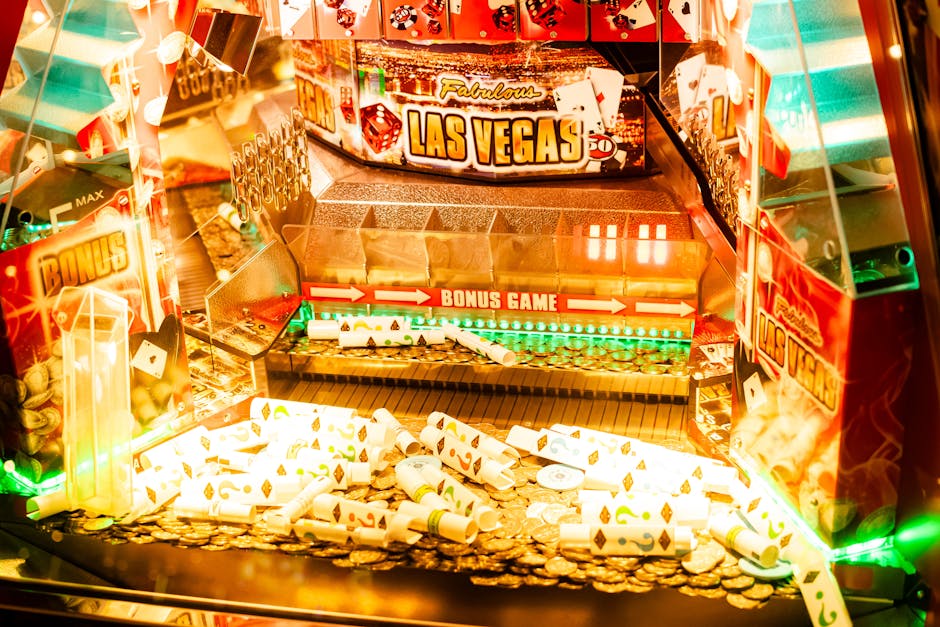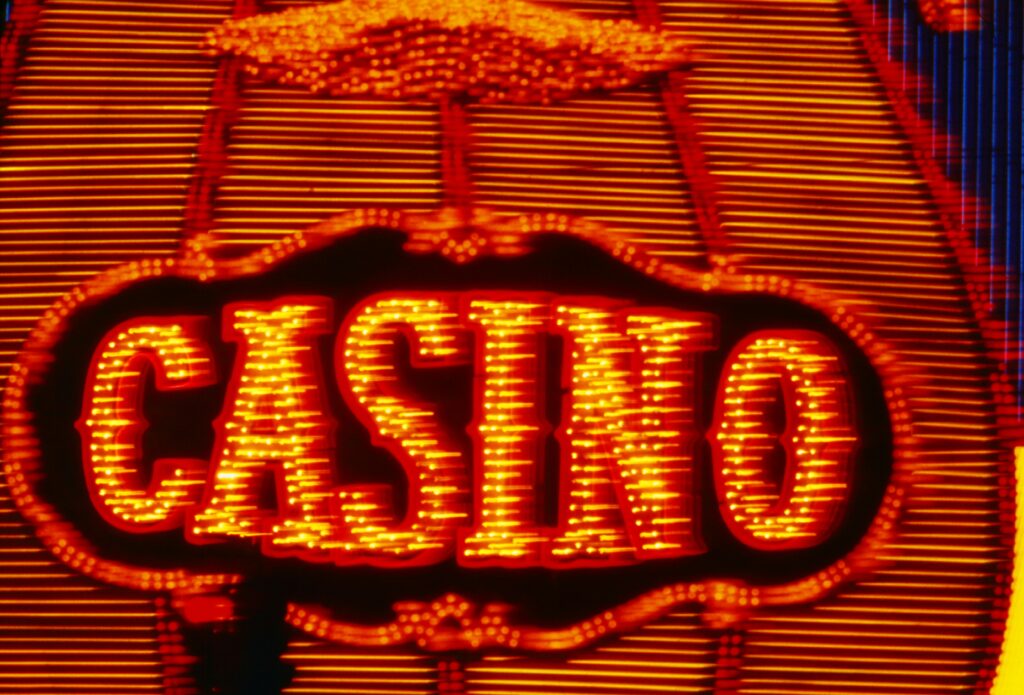Know the Odds Before You Play
Let’s get this straight: not all casino games are created equal. Some are designed to bleed your bankroll slowly, others give you a fighting chance. The difference? House edge. That’s the built-in percentage the casino expects to win over time. If you ignore it, you’re just guessing your way through the floor—or worse, giving the house more than its fair share.
If you want better odds, start with Blackjack, Baccarat, or Craps. Blackjack offers a house edge as low as 0.5%—if you play smart. Baccarat is simple, elegant, and surprisingly fair with a solid banker bet. Craps looks chaotic, but savvy players know which bets keep the house edge low.
On the flip side, approach Slots and Keno with caution. Sure, they’re flashy and easy to play, but that’s part of the trap. The house edge on these can reach double digits. That jackpot? It’s fun to dream, but don’t expect it to pay off.
Understanding probability doesn’t make the game less fun—it makes you a smarter player. Once you know where the long-term odds stand, you can play with more intention and less regret. The house always has an edge. Your job is to choose the games where that edge doesn’t eat you alive.
Learn Basic Strategy for Skill-Based Games
If you’re playing to win, not just to kill time, you need to respect the numbers. Let’s start with Blackjack. It’s one of the few casino games where skill genuinely impacts your odds. First, know the card values: face cards are worth 10, Aces can be 1 or 11, and everything else holds its number. Sounds simple. But decisions matter— a lot. Use a basic strategy chart. It tells you exactly when to hit, stand, split, or double down based on the dealer’s upcard and your hand. Stick to the chart, and you cut the house edge to nearly zero.
Poker’s less about the math and more about people. Reading your opponents—how they bet, bluff, and react—is your biggest edge. Combine that with smart table positioning (playing more hands when you act last) and disciplined bankroll control, and you build staying power. The longer you last, the more mistakes you can capitalize on.
And yes, strategy beats gut instinct. Every time. Intuition feels good, but it’s inconsistent. Solid strategy compounds. Over hours and hands, that edge keeps you in the game when luck runs dry. Put in the reps, study your moves, and play with purpose. That’s how you shift from gambling to gaming.
Bankroll Management Is Non-Negotiable
Managing your money wisely is one of the most important aspects of successful casino play. Without a solid bankroll strategy, even the best players can find themselves in trouble. Think of your bankroll as your lifeline in the game—and how you manage it can determine how long, and how well, you play.
Set a Realistic Budget
Before stepping onto the casino floor or logging into an online platform, decide how much you’re willing to lose. This isn’t about pessimism—it’s about discipline.
- Only gamble with money you can afford to lose
- Separate your gambling funds from personal finances
- Avoid chasing losses by trying to “win it back”
Use Session Limits
Breaking your play into sessions helps you maintain control and stick to your predetermined spending limit.
- Set a maximum amount of time or money for each session
- Plan breaks between sessions to reassess and refocus
- End a session once your limit is hit—win or lose
Apply the Walk-Away Rule
Knowing when to quit is a rarely mastered, but powerful, skill. Walking away protects your gains and safeguards your bankroll from emotional decisions.
- Have a stop-loss limit (a point where you cut your losses)
- Set a win goal; celebrate and leave when you hit it
- Don’t let a hot streak trick you into overstaying your welcome
In short, bankroll management is what keeps casual fun from turning into financial regret. Gamblers with discipline are the ones who play longer and, in the long run, smarter.
Take Advantage of Bonuses and Loyalty Programs
You don’t need to be a high roller to get perks. Casinos—online and off—offer freebies because they want your business. If you’re going to play, you might as well take the edge they’re giving.
Comps (complimentary rewards), cash-back deals, and match deposit bonuses can extend your playtime or soften your losses. At land-based casinos, that might mean free drinks, meals, or even hotel stays. Online, it often shows up as a 100% match on your deposit, bonus spins, or loyalty points you can convert into funds.
Sign-up bonuses are the easy win. Most online casinos hand new players a package just for registering and depositing. The catch? There is one. That’s where the fine print comes in—namely, wagering requirements. These are the conditions you need to meet before you can cash out any bonus money. For example, a 20x wagering requirement on a $100 bonus means you have to bet $2,000 before you’re eligible to withdraw. Not impossible—but not nothing, either.
To win smarter, treat bonuses like a tool, not a guarantee. Take what helps, ignore what doesn’t, and never chase a perk that puts you in over your head.
Practice for Free Before Playing for Real
Before risking a single dollar, take advantage of the tools right in front of you: demo versions and free-play modes. Nearly every reputable online casino offers them, and they’re not just gimmicks—they’re your training ground.
Use the free games to get comfortable with rules, speed, and layout. This is the time to learn what button does what, when to hold, and how certain features work. It’s also your low-stakes lab for trying new strategies. Want to test that aggressive doubling-down technique in blackjack? Do it here. Thinking about aggressive bluffing in video poker? Now’s the time.
More than anything, free play builds confidence. And when real stakes kick in—and with them, the pressure—you’ll draw on that muscle memory. Games move fast, especially online. It helps to already know what you’re doing when it counts.
Mind Your Emotions
Losing your cool at the tables is a fast track to losing your money. Tilt, frustration, and overconfidence aren’t just emotional responses—they’re bankroll predators. When you start chasing losses or doubling down out of stubborn pride, that’s not strategy. That’s your ego running the show.
The best players know how to spot when they’re slipping. Are you impatient? Making decisions faster than usual? Ignoring your own rules? That’s your signal to tap the brakes. Take a lap. Grab some water. Step outside and reset. Walking away for ten minutes is way smarter than blowing your stack on tilt.
But here’s the trick: take breaks without breaking your rhythm. Set structured sessions with built-in pause points. That way, you get time to regroup without losing momentum—or discipline. Play like a pro by managing not just your money, but your mind.
Time and Alcohol: Silent Bankroll Killers
Let’s get one thing straight: the longer you sit at a table or spin the reels, the more those odds catch up to you. Casinos aren’t handing out free drinks and flickering lights because they’re feeling generous—they’re engineered to keep you playing, and the house always has an edge. Playing for extended sessions? That’s how winnings quietly trickle back into the system.
Then there’s alcohol. A free whiskey might sound like a perk, but it costs you judgment. Quick math gets slower. Risk feels smaller. Losing becomes easier to ignore. If you’re serious about walking away ahead—or just breaking even—keep clear-headed. Drink after the game, not during.
Solution? Use a timer. Set a limit—30 minutes, an hour, maybe two—and stick to it. Decide your max loss before a session starts and walk when you hit it. You’re not just beating the odds—you’re beating the system. That’s how smart players do it.
Go Online to Train Smarter
Skill pays off—but only if it’s sharp. The good news is, there’s no need to burn money while learning the ropes. Strategy simulators and hand calculators make your practice smart, not just repetitive. Whether you’re running blackjack probability trees or fine-tuning your Texas Hold’em folds, these tools help you understand why smart plays win more often.
Beyond the tools, there’s the chatter: forums and YouTube channels are goldmines. You’ll find pros breaking down their hands, deep dives into game mechanics, and community advice that saves you from rookie mistakes. Just filter out the noise—look for creators and threads that focus on math, patterns, and real-world gameplay habits.
To cut through the junk and start strong, check out resources curated at GambleHubZone. It’s a launchpad for practical learning, not just theory. The point is: train like it’s a profession, so when stakes get real, your edge does too.
Play Where It Counts
Not all casinos are worth your time—or your money. Whether you’re playing in person or online, the first rule is simple: go where the odds are fair and the rules are clear. That means sticking with licensed venues that are regulated and that openly disclose their payout percentages.
In land-based casinos, reputable usually means big-name locations in jurisdictions like Las Vegas, Macau, or regulated tribal casinos. For online players, stick to platforms that show licensing from respected gaming authorities (think Malta, UK, or New Jersey). If you can’t easily find their license info or terms? Skip it.
Also, look for casinos that offer high payout percentages—slots, for example, should show a return to player (RTP) above 95%. The fine print shouldn’t be a scavenger hunt. Terms should be written in plain language, not in legal smoke.
The bottom line: you wouldn’t trust your money to a shady bank. Don’t do it at a shady casino either. A little research upfront can protect your bankroll, your data, and your time.
Final Word: Luck Helps, But Skill Stays
You won’t win every time. That’s the truth, and anyone selling you a surefire system is selling fantasy. The house has the edge—it’s how casinos make money. But playing smart? That’s how you stay in the game longer and walk away ahead more often than not.
Preparation beats superstition every time. If you understand the odds, know the games that give you a fighting chance, and walk in with a gameplan, you’re already ahead of most casual players. The gamblers who win more often aren’t lucky—they’re disciplined.
At the end of the day, treat gambling like entertainment with stakes. Keep it fun, stay sharp, and lean into the small advantages you can control—strategy, mindset, and timing. Skill won’t flip the odds entirely, but it gives you better footing every time you place a bet.




